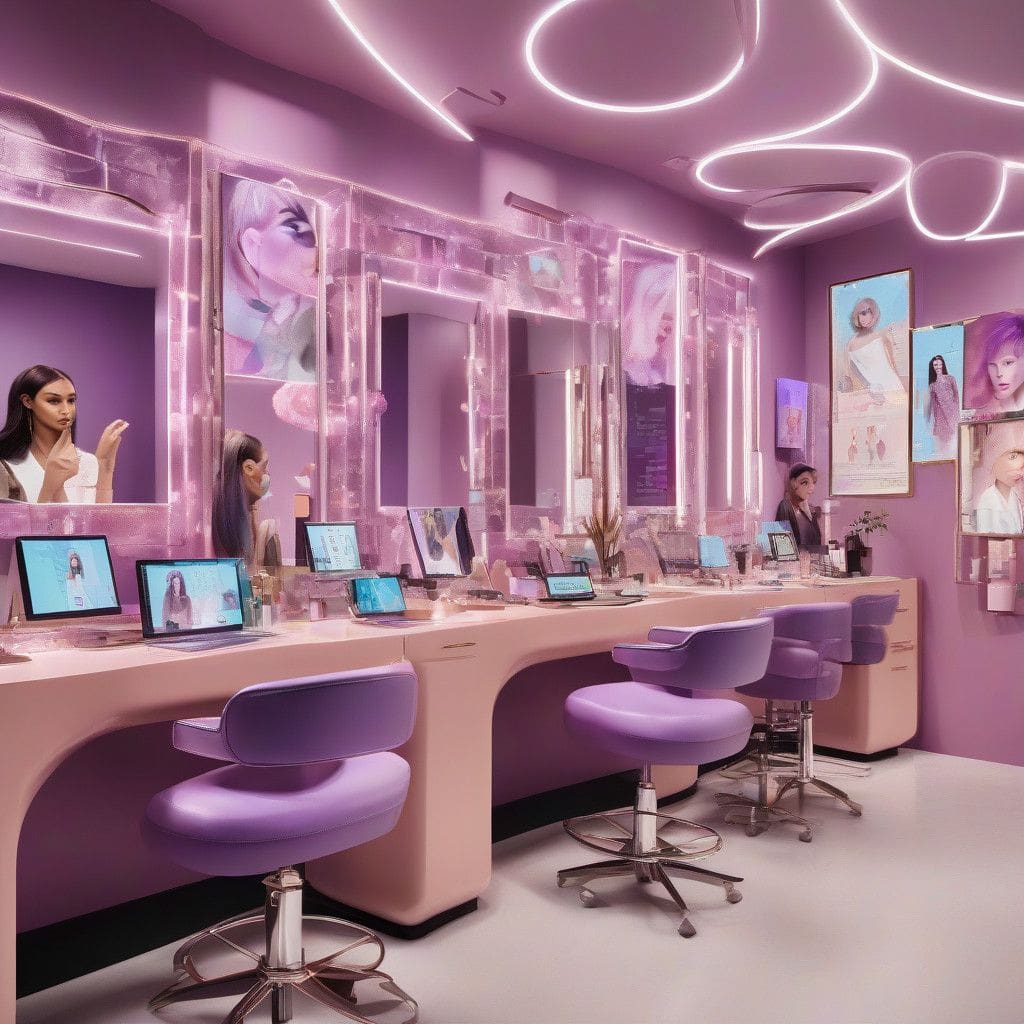Despite the critical global agenda aimed at achieving gender equality and empowering women, momentum towards parity has noticeably slowed, particularly in the wake of ongoing crises and challenges. The beauty industry, a sector predominantly composed of women, offers a unique opportunity to initiate and accelerate change. This is where Francis Tesmer, founder and CEO of Rolfs Global Institute, steps in, calling for collaboration with giants like L’Oréal to revolutionize the industry through education.
Establishing the Lead programme in 2021, the Rolfs Global Institute launched the first-ever degree program specifically tailored for beauty professionals. This initiative has been pivotal in reshaping the narrative around beauty as simply a trade, transforming it into a recognized profession. With support from L’Oréal, which has long championed women’s empowerment principles, the Lead programme aligns perfectly with the sustainable development goals outlined by the United Nations, reinforcing the commitment to gender equality.
Since its inception, the Lead programme has awarded scholarships exceeding $1 million, of which an impressive 92 percent benefited women in the beauty industry. This financial backing is not merely a statistic—it represents a tangible investment in the future of beauty professionals who traditionally faced barriers to higher education. Tesmer passionately emphasizes this mission, stating, “This is a global movement to increase the impact of beauty professionals and the beauty industry collectively.”
The curriculum set forth by the Lead programme is meticulously designed to provide accelerated pathways to a Bachelor of Science degree in beauty and wellness. By facilitating classes online and across partner universities, it enables students to acquire essential skills that meet today’s industry demands. The focus on innovation and scientific understanding ensures that graduates are not just beauticians, but well-rounded professionals capable of contributing effectively within a competitive market.
The programme’s reach extends globally, welcoming students from a diverse range of backgrounds, with special focus on developing nations and underserved communities. This strategic approach not only promotes professional growth but also assists in closing the education gap that has long hindered women in the beauty industry.
Further amplifying this initiative, the Lead programme plans to introduce an international apprenticeship scheme in 2025. This addition will connect aspiring beauty professionals directly with on-the-job training and mentorship, solidifying their capabilities in real-world scenarios. Tesmer envisions a future where hundreds of thousands of beauty professionals are equipped with the knowledge and confidence needed to thrive, saying, “Our goal is to educate hundreds of thousands of beauticians globally to become the beauty professionals of the future, creating generational transformation.”
Graduates of the Lead programme have experienced profound personal and professional transformations. Take Smart, for example, who has transitioned from an educator/artist to a Redken Regional Education Manager at L’Oréal. She credits the programme for enhancing her leadership skills, deepening her self-awareness, and enabling her to make meaningful connections in her community. “The Lead programme has been transformative, both professionally and personally,” she reflects, illustrating how education can empower women to rise within their chosen fields.
Similarly, De Anda, who jumped into the role of BeauScientist at Rolfs Global Institute, highlighted the bespoke nature of the Lead programme that addressed her specific needs as a first-generation student aspiring to make a mark in the beauty sector. “The Lead programme provided me with a more custom pathway to earn the qualifications needed and equip me with the tools to take control of my career,” she elaborates, showcasing how targeted educational offerings can foster individual ambitions and community outreach.
Torres, another Lead graduate and current Senior Manager in Digital Education for Matrix Professional, also credits his participation with helping him refine vital communication and financial management skills essential for effective leadership in the beauty industry. “The Lead programme has helped put me well on my way” to achieving my career goals, he states, signifying the program’s success in aligning academic knowledge with practical applications.
As the Lead programme continues to flourish, it serves not just as a means to education but as a catalyst for societal change, promoting gender equity and empowering women across the beauty industry. The recognition from the United Nations, which awarded the Global UNIDO SDG Innovation Award to Lead, demonstrates the programme’s international commitment to social impact. By merging academic rigor with real-world applications, it reinforces the significance of the beauty industry as a viable and respected profession.
In conclusion, as organizations like Rolfs Global Institute and L’Oréal show, empowering women in the beauty industry through education is a vital step toward achieving gender parity. The Lead programme stands as a beacon of hope, providing much-needed resources and opportunities for aspiring beauty professionals worldwide, ultimately shifting the paradigm of beauty from a mere trade to a respected profession, while reinforcing the power of women as leaders in their communities.












